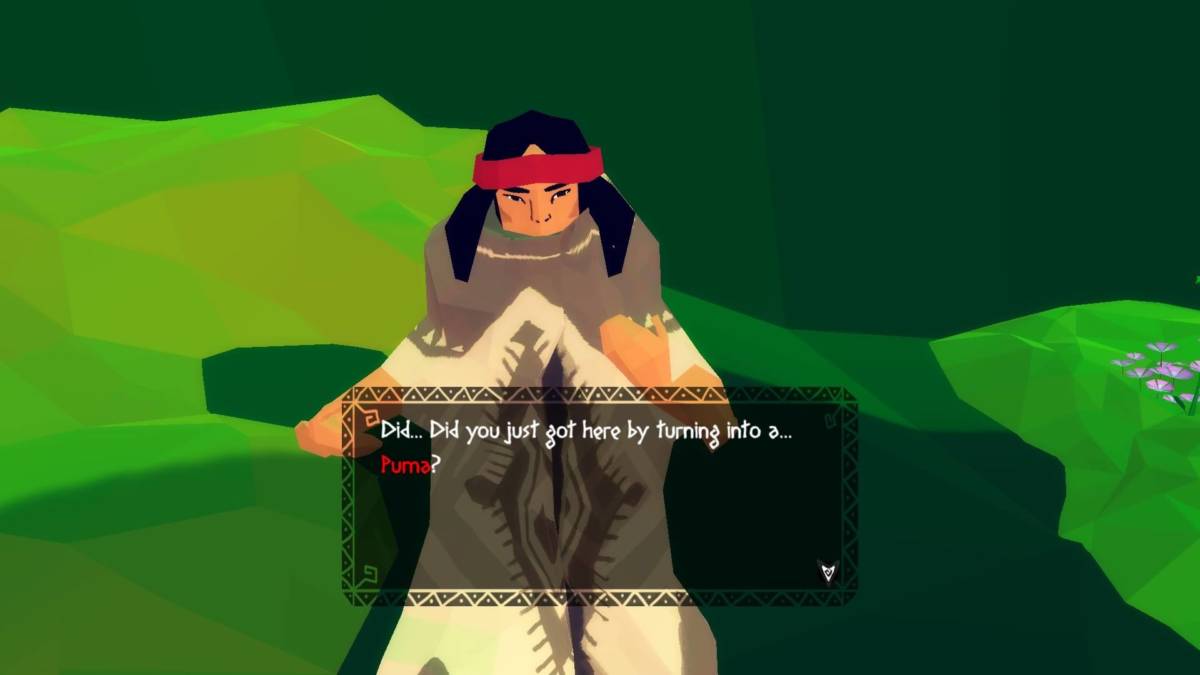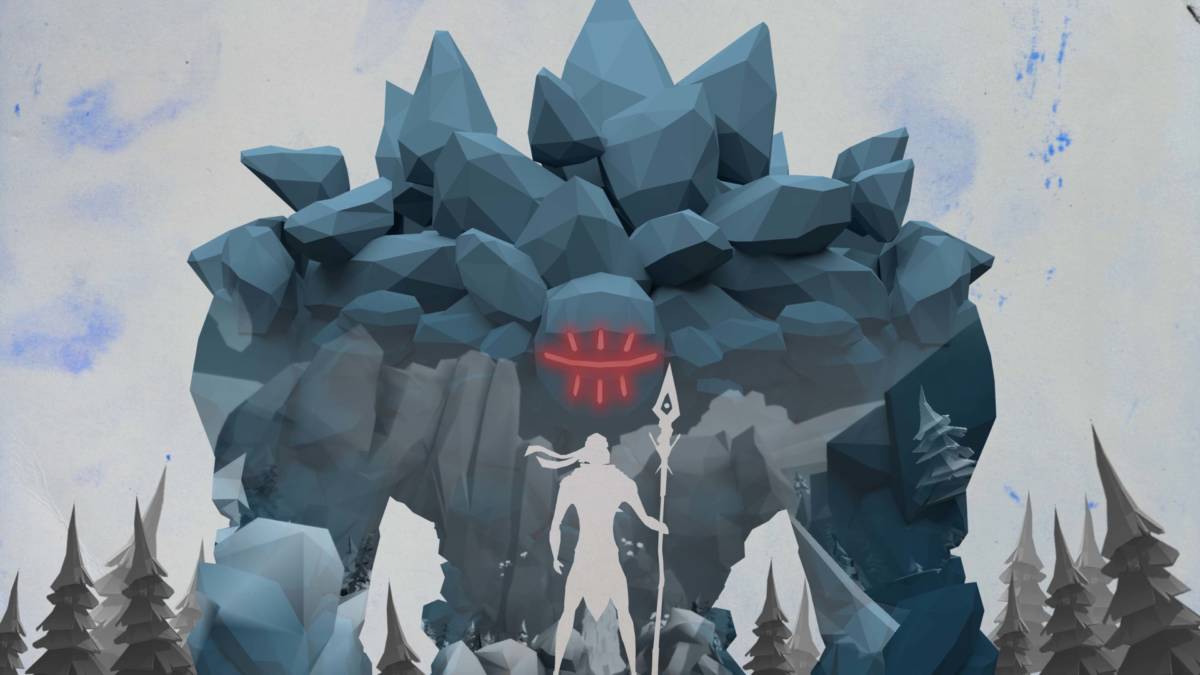Developer: Lienzo
Publisher: Lienzo
Platform(s): PS4, XB1, Switch, PC
Review code provided
Lienzo’s ambitious action-adventurer Mulaka feels like it comes from a bygone era of gaming. While that might seem like a criticism, recent games have shown shown that updated homages to the old school can make a big impression in the new. You just need to look at A Hat In Time to realise that games that refresh the classics can do their inspirations justice and stand on their own, even without nostalgic goggles on.
The most obvious counterpart to Mulaka is The Legend of Zelda, but its N64 efforts most of all. Mulaka knows this, too — there’s even a trophy for attempting to smash pots that’s a cheeky wink to Nintendo’s flagship franchise. For another nod to that era, Mulaka has a Banjo-Kazooie feel to it in its approach to its level design and platforming. Essentially, if you grew up on a healthy diet of blocky platformers, you will be in seventh heaven here.
What is distinctly Mulaka’s own, however, is its setting and focus on Mexican lore. You play as the titular hero on a quest to save the Tarahumara people from the corruption that is blighting the lands of Sierra Tarahumara. It’s an unlikely well of inspiration to draw from, but learning more about one of Mexico’s most influential and important cultures creates an interesting story featuring demi-gods, shamans, and a unique, low-poly aesthetic to catch the eye.
The brunt of your time with Mulaka will be spent adventuring across its levels and battling the monsters that are plaguing the Tarahumara. The combat in Mulaka is fine, sometimes even great, but most fights against standard enemies are won by either light or strong attacks (square and triangle respectively). There’s some enjoyment to be had once the game really gets going and you gain extra powers and abilities, but it’s a trifle basic until then — look towards the midway point of proceedings before Mulaka really hits its stride.

The main aim of Mulaka is to meet demi-gods and be imbued with their powers, which can then be used to traverse to new areas or give you an advantage in battle. It starts off simple, giving you the power of flight from a woodpecker to traverse previously unreachable areas and avoid attacks in battle. Eventually, you will be able to transform into a snake, a puma, even a bear. These are all vital for progression with greater emphasis placed on the woodpecker and puma; the other two are sadly only useful for a couple of occasions in the main meat of the game but can be called upon to discover the many secrets the world holds after the credits roll. I didn’t think freezing things with a snake before flattening them with a bear attack would be one of my favourite gaming experiences of 2018, but here we are.
The main gameplay loop of Mulaka revolves around finding three “crystals” within a level and then going on to face the boss. Lienzo’s approach to relatively open levels pays off for them; you’re always rewarded for going off the beaten track or by following one of the many question marks in your shaman vision, which can also be used to reveal cloaked enemies. However, every level plays more or less the same with there being very little in the way of variety until the last couple of stages. It’s a case of reaching an area, fighting a few nasties, obtaining a crystal and then going to face the big bad. If you play Mulaka exactly like this, you might become jaded very quickly, so it’s lucky that Lienzo have populated its world with plenty of collectibles and NPCs to mix things up. Even with those distractions, I found myself getting slightly jaded with Mulaka before its end.
My main quibble with Mulaka comes down to a basic flaw: its camera. Rather than adapting to the player as they move around an arena, it needs constant supervision. Hardly ideal when you have a mass of enemies to contend with, but especially so when there are flying critters who can, pretty annoyingly, ensnare you and leave you vulnerable to an attack with you rooted in place. The enemy variety is worth applauding, but when most of your time is spent trying to deal with enemies who can rather cheaply trap you and those that can only be attacked in a certain way as well as the unreliable camera, combat is more frustrating than it is rewarding.
The way Mulaka attacks is also somewhat unpredictable in that he can just outright miss straightforward strikes, which is highlighted in the least flattering light with smaller enemies. Perhaps it’s to do with the Unity engine or a strange depth of field, but Mulaka doesn’t always play like the powerful saviour the game touts him as. Seemingly in an attempt to foster more of a challenge, Mulaka can use potions to buff his strength, bring up a shield, and even to restore health, but he needs to perform a ritual dance to do so, which can cause some headaches in the midst of a chaotic battle.
Visually, Mulaka is a weird but novel mixture of plain beauty: none of the models or assets looks especially good (they’re more just competent) and become even worse when up close, but when mixed with its contrasting and vibrant colour palette, it somehow becomes gorgeous. The soundtrack, inspired by the music of the Tarahumara, is a mix of traditional and contemporary stylings that always suits the situation — the music as you’re visiting the market is my new jam.
Even though I was deflated by its faults, I was still charmed enough by Mulaka to return to it after my eight-hour playthrough to find more collectibles and hear that comforting ping of a new trophy. As someone who seldom returns to games once the main attraction is over with, that speaks volumes for the endearing world that Lienzo have crafted here, one that feels like a refreshing throwback to two different pasts: gaming in the nineties and the indigenous people of Tarahumara.
We may complain about seeing the same stories over and over again in video games, but if tales like Mulaka’s keep getting told and celebrate an often overlooked culture while doing so, there will always be alternatives to the mainstream worth seeking out.
Some of the coverage you find on Cultured Vultures contains affiliate links, which provide us with small commissions based on purchases made from visiting our site.



